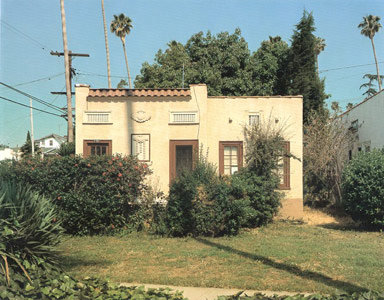Stephen Shore
dal 25/7/2007 al 24/8/2007
Segnalato da
25/7/2007
Stephen Shore
Monika Spruth Philomene Magers London, London
The Velvet Years. This exhibition focuses on the period 1965-67 which Shore spent at Warhol's Factory, a time which was to have a great influence on his own work. The artist is rightly considered one of the most influential photographers to have emerged from the last half of the twentieth century.

The Velvet Years. Warhols's Factory 1965-67
'One May afternoon when we were filming in L'Avventura, a young kid named Stephen
Shore came by to take pictures of us. He'd made a short film that was shown at the
Film-Makers' Coop the same night in February as my 'The Life of Juanita Castro' and
afterward he'd come over to me and asked if he could come by the Factory - he was
taking still photographs and had heard there was a lot going on there.' (Andy Warhol
in 'POPism: The Warhol Sixties,' Andy Warhol and Pat Hackett).
Celebrated for his groundbreaking work with colour photography in such seminal
series as American Surfaces (1972) and Uncommon Places (1973-1979), Stephen Shore is
rightly considered one of the most influential photographers to have emerged from
the last half of the twentieth century. This exhibition focuses on the period
1965-67 which Shore spent at Warhol's Factory, a time which was to have a great
influence on his own work. As somewhat of a child prodigy, Shore had developed an
interest in photography from the age of six and by the age of fourteen had already
famously sold three of his prints to Edward Steichen at the Museum of Modern Art. In
1965, shortly after an initial request, Shore was invited to take photographs at the
restaurant L'Avventura where Warhol was shooting what was to become the film
Restaurant. From that time on, Shore spent almost every day at the Factory observing
and photographing the many goings-on of a now famous cast of characters - amongst
others
Warhol himself, Edie Sedgwick, Lou Reed, Billy Name, International Velvet and Paul
Morrissey.
The photographs taken at this time not only document the 'golden days' of the
Factory before the attempt on Warhol's life by Valerie Solanas in 1968. This was a
time when Warhol was making films almost on a weekly basis and Shore was clearly
influenced by the laconic nature of these films, Warhol's use of serial imagery and
his obsession with recording everything around him, aspects which would take Shore's
own documentary photography to a new level. 'I think I learned by observing, not
observing him in order to learn, just by being exposed to the decisions and actions
he was making…. By the end of my stay at the Factory, I found that just my contact
with, and observation of, Andy led me to think differently about my function as as
an artist. I became more aware of what I was doing.' (Stephen Shore in 'The Velvet
Years. Warhol's Factory, 1965-67.' Text by Lynne Tillman).
In a distinguished career that stretches back to his first solo exhibition at the
Metropolitan Museum of Art in 1971 (the first to be given to a living photographer),
Shore has exhibited widely and is currently Susan Weber Soros Professor in the Arts;
Director, Photography Program at Bard College, New York. His retrospective
'Biographical Landscape: The Photography of Stephen Shore, 1969-79' is currently on
view at New York's International Center of Photography until 9th September, 2007.
Phaidon will publish a monograph on Shore this autumn and 'A Road Trip Journal' in
Spring of 2008. Concurrent with this exhibition, 'Warhol Part 1' a season of Warhol
films at the British Film Institute runs from 7th August to 30th September.
Image: Coronado St., Los Angeles, California, 6/21/75, 1975 c-print Ed. 1/8
For further information or visual material please contact Nina Øverli, no@spruethmagers.com
Opening: Thursday, July 26, 6 - 8pm
Monika Sprüth
Philomene Magers London
7A Grafton Street London W1S 4EJ UK
Opening Hours:
Tuesday - Saturday, 10 am - 6 pm and by appointment



